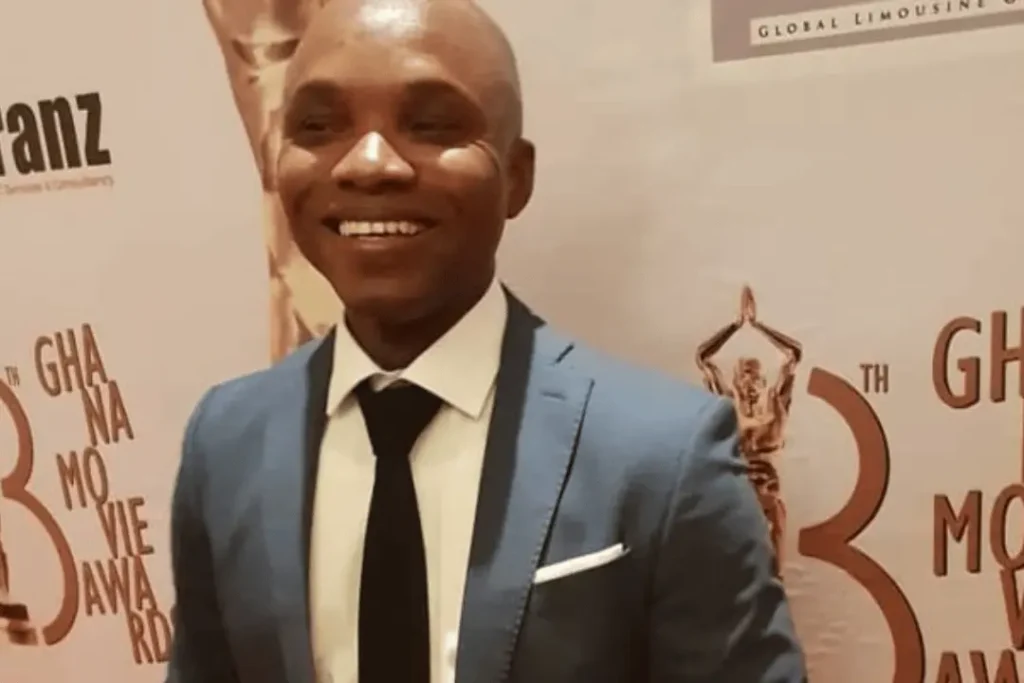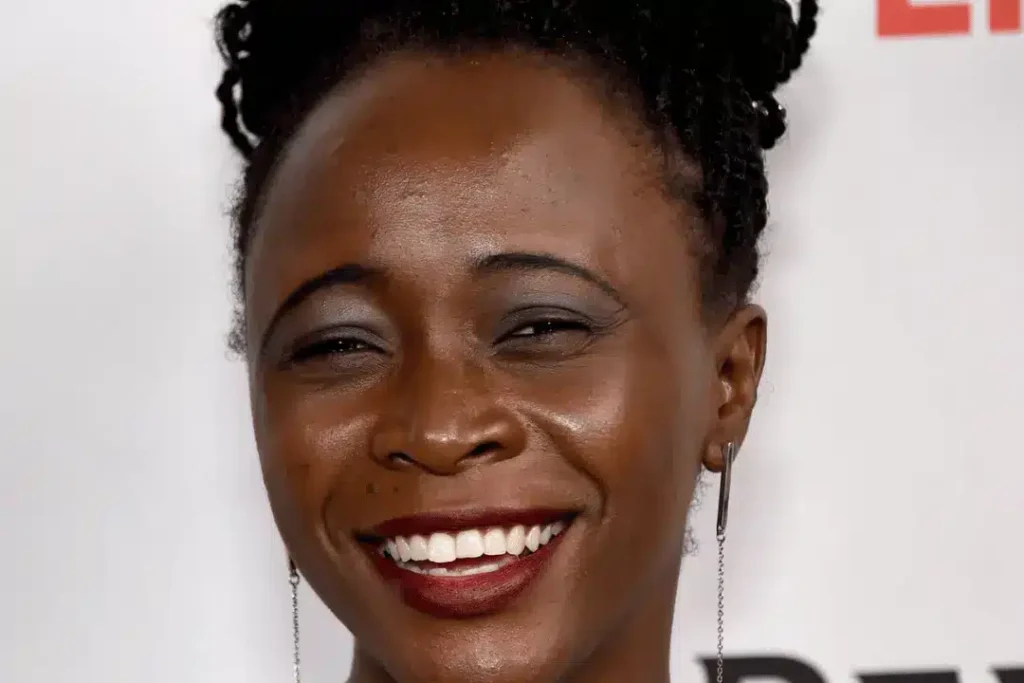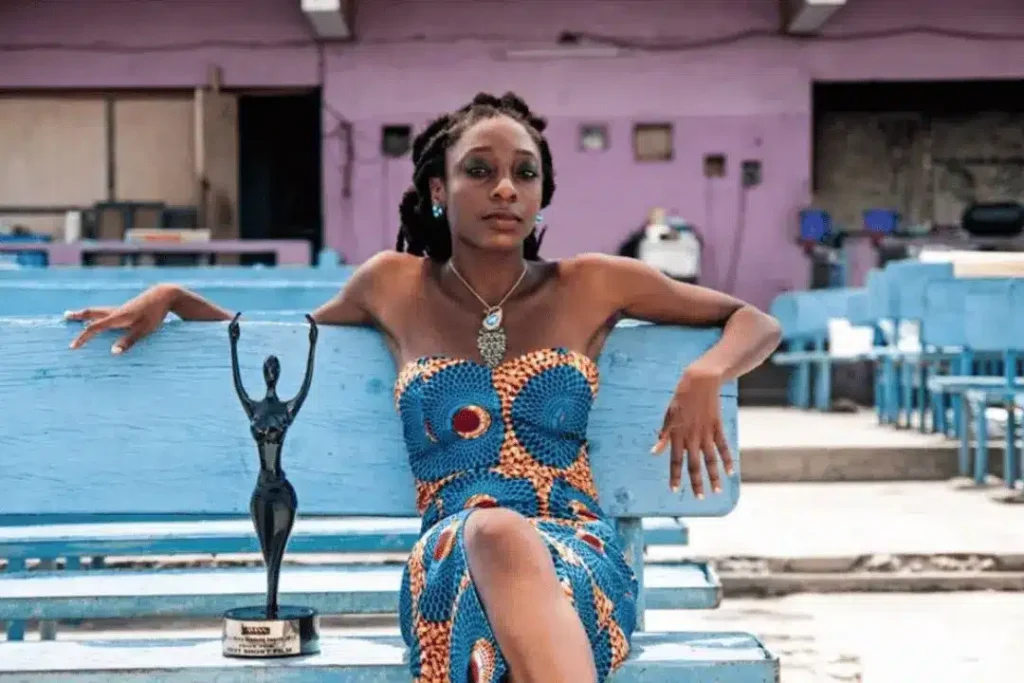Table of Contents
“Silence isn’t an option when stories cry out to be told,” declares filmmaker Akosua Adoma Owusu, her voice echoing the unwavering courage that resonates throughout Ghanaian independent cinema.
In a film industry where commercial pressures often overshadow vital narratives, a new wave of Ghanaian indie filmmakers is rising, wielding their cameras like torches against the darkness of silenced truths.
They are storytellers with courage in their hearts and stories in their hands, unafraid to tackle the most pressing social issues facing their nation and beyond.
From Kwabena Gyansah’s unflinching exploration of environmental exploitation in “Gold Coast” to Leila Djansi’s powerful indictment of domestic violence in “A Sting in the Tale,” four Ghanaian indie filmmakers stand out as voices of change.
Let us delve into their stories, witnessing how their unwavering commitment to social justice ignites conversations, challenges norms, and empowers communities, frame by frame.
1. Kwabena Gyansah: Unmasking the Greed beneath the Glittering “Gold Coast”

Kwabena Gyansah is not afraid to get his hands dirty, both figuratively and literally. From his early days working in Ghana’s gold mines to his present career as a filmmaker, Gyansah has delved headfirst into the harsh realities of his nation’s extractive industry. This firsthand experience fuels his artistic courage, driving him to illuminate the human cost of environmental exploitation in his most impactful film, “Gold Coast.”
A Story Carved in Grit and Gold:
“Gold Coast” is not a polished documentary; it’s a raw, unflinching portrayal of the devastating consequences of unchecked mining on Ghanaian communities.
We follow the stories of families displaced, environments poisoned, and livelihoods stolen as multinational corporations mine for riches while leaving behind a trail of devastation.
Gyansah doesn’t shy away from graphic images or heartbreaking testimonies, forcing viewers to confront the ugly truth hidden beneath the glittering facade of mined wealth.
“The Camera, My Weapon”: Gyansah’s Unflinching Vision:
“The camera is my weapon,” Gyansah declared in an interview with The Guardian. “I aim it at the darkness, so people can see what’s hidden there.” This quote perfectly encapsulates his courageous filmmaking approach. He wields his camera not just to document, but to expose, to challenge, and to ignite change.
Sparking a Nationwide Conversation:
“Gold Coast” was not just a film; it was a wake-up call. The film sparked nationwide conversations about environmental justice, prompting protests, policy debates, and increased scrutiny of mining practices in Ghana. It empowered local communities to demand accountability and advocate for responsible mining practices.
A Beacon for Ghanaian Indie Filmmakers:
Kwabena Gyansah’s courage and commitment to social impact through film serve as a beacon for a new generation of Ghanaian indie filmmakers. He proves that cinema can be a powerful tool for change, holding a mirror to society’s injustices and inspiring action toward a more equitable future.
2. Leila Djansi: Weaving Threads of Healing Through “A Sting in the Tale”

Leila Djansi is not a stranger to adversity. From facing censorship attempts in her home country to battling personal struggles, Djansi has honed a unique brand of courage – one that finds strength in vulnerability and uses storytelling as a balm to heal individual and collective wounds. Her most impactful film, “A Sting in the Tale,” exemplifies this transformative power of bravery in the face of silence.
Breaking the Taboo, One Frame at a Time:
“A Sting in the Tale” tackles the often-silenced issue of domestic violence in Ghana. Djansi doesn’t shy away from the brutal realities, but she approaches the subject with nuance and empathy. She interweaves fictional narratives with real-life testimonies, creating a tapestry of pain, resilience, and ultimately, hope. This courageous decision to break the taboo surrounding domestic violence allows survivors to find their voices and empowers onlookers to confront a prevalent but hidden societal issue.
“It’s Not Just My Story”: Djansi’s Empathetic Vision:
“This film isn’t just about my experience,” Djansi stated in an interview with BBC Africa. “It’s about giving voice to countless women who have suffered in silence.” This quote reflects her courage in taking on a personal, painful subject and making it a story that resonates with a wider community. She uses her vulnerability as a tool to connect with others and foster empathy, creating a space for healing and shared understanding.
Building Bridges Across the Scars:
“A Sting in the Tale” didn’t just spark conversations; it built bridges. Djansi established support groups for survivors based on the film’s themes, providing a safe space for healing and empowerment. The film also spurred initiatives to raise awareness about domestic violence and advocate for legal reforms.
The Courage to Be Vulnerable:
Leila Djansi’s strength lies not just in her unflinching portrayal of hardship, but in her willingness to be vulnerable. By sharing her own story and giving voice to others, she challenges the culture of silence surrounding domestic violence and inspires a wave of courage in both survivors and communities.
3. Akosua Adoma Owusu: Reclaiming the Narrative with “Kwame Nkrumah & I”

Akosua Adoma Owusu is a firebrand, a disruptor, and a filmmaker who unapologetically rewrites history, one frame at a time.
Her courage lies in challenging dominant narratives, particularly those surrounding powerful figures like Ghana’s first president, Kwame Nkrumah.
Her most impactful film, “Kwame Nkrumah & I,” embodies this audacity, forcing viewers to confront uncomfortable truths and re-evaluate historical legacies.
Deconstructing the Pantheon: Owusu’s Revisionist Lens:
“Kwame Nkrumah & I” isn’t a hagiography; it’s a deconstruction. Owusu weaves archival footage with fictionalized encounters, presenting Nkrumah not as a monolithic hero, but as a complex figure with flaws and contradictions.
This courageous approach to revisionist history sparks vital conversations about colonialism, Pan-Africanism, and the complexities of African leadership.
“History is Not Static”: Owusu’s Challenge to Memory:
“History is not static,” Owusu passionately declared at a film festival screening. “It’s a living conversation, and we have the right to participate in it, to question, to re-imagine.”
This quote captures her fearless approach to film as a tool for challenging established narratives and reclaiming ownership of stories often dictated by external forces.
Beyond Nkrumah: A Catalyst for Pan-African Discourse:
While “Kwame Nkrumah & I” focuses on a specific figure, its impact extends far beyond him. The film has triggered vibrant discussions about Pan-Africanism, inspiring younger generations to engage with and reinterpret their shared history.
It has also emboldened other African filmmakers to question dominant narratives and explore their complex historical landscapes.
The Courage to Unravel and Rebuild:
Akosua Adoma Owusu’s courage lies not just in challenging the past, but in paving the way for a future where diverse narratives can flourish.
By dismantling established heroes and encouraging open dialogues, she empowers audiences to actively participate in shaping their historical understanding.
4. Blitz Bazawule: Embracing Whimsy to Subvert in “The Burial of Kojo”

Blitz Bazawule’s courage isn’t a roar; it’s a whisper – a mischievous twinkle in his eye as he spins fantastical tales layered with subtle social commentary. His most impactful film, “The Burial of Kojo,” exemplifies this unique brand of subversion, using whimsical storytelling to tackle issues of identity, migration, and societal expectations with disarming charm.
Weaving Magic from Reality: Bazawule’s Unconventional Brushstrokes:
“The Burial of Kojo” is a genre-bending odyssey, blending magical realism with contemporary Ghanaian life.
We follow the journey of a man haunted by his deceased brother, his search for redemption intertwined with the struggles of a community grappling with modernization and economic hardship.
Bazawule’s courage lies in his unapologetic embrace of whimsy, using fantasy as a Trojan horse to smuggle in biting social critiques.
“Unveiling Truth through Laughter”: Bazawule’s Playful Provocation:
“Laughter is a powerful weapon,” Bazawule once remarked. “It allows us to disarm defenses and see the truth beneath the surface.”
This quote captures his subversive approach to filmmaking. By cloaking his social commentary in playful humor and fantastical flourishes, he engages audiences without lecturing, prompting them to laugh at themselves and question ingrained societal norms.
Bridging Gaps with Laughter: “The Burial of Kojo” and its Ripple Effects:
“The Burial of Kojo” didn’t just entertain; it sparked conversations. The film’s success on the independent circuit, embraced by both Ghanaian audiences and international festivals, highlighted the power of Ghanaian Indie Filmmakers to tell captivating stories that resonate globally.
It also opened doors for future filmmakers to explore unconventional storytelling forms while tackling relevant social issues.
The Courage to Play, the Power to Transform:
Blitz Bazawule’s courage lies in his playful subversion, and his ability to weave social commentary into whimsical narratives that disarm and engage audiences. He proves that laughter and fantasy can be powerful tools for dismantling societal blind spots and inspiring positive change.
III. Collective Courage, Collective Impact: A Symphony of Stories that Moves Mountains
From Kwabena Gyansah’s unflinching gaze at environmental exploitation to Blitz Bazawule’s playful subversion of societal expectations, these four Ghanaian Indie Filmmakers are united by a common thread: the unwavering courage to weave stories that challenge, expose, and ultimately, inspire change.
Individually, their voices are powerful; collectively, they form a symphony of courageous narratives that resonate across borders and amplify the impact of their social mission.
The Threads of Courage: Weaving a Powerful Tapestry
- Unmasking Hidden Realities: Gyansah’s “Gold Coast” rips away the glittering façade of resource extraction, while Djansi’s “A Sting in the Tale” sheds light on the silenced trauma of domestic violence. Owusu’s “Kwame Nkrumah & I” reimagines historical narratives, and Bazawule’s “The Burial of Kojo” uses magical realism to expose societal truths. Each filmmaker, despite their diverse styles, shares the courage to tackle uncomfortable subjects and unveil hidden realities.
- Pushing Boundaries, Defying Silences: From challenging censorship attempts to adopting unconventional storytelling forms, these Ghanaian Indie Filmmakers defy silence and push creative boundaries. Owusu’s bold reinterpretation of history and Bazawule’s genre-bending approach are testaments to their unwavering commitment to artistic freedom and innovative storytelling.
- Empowering Voices, Sparking Action: These films are not mere entertainment; they are catalysts for change. Gyansah’s “Gold Coast” fueled community protests against harmful mining practices, while Djansi’s “A Sting in the Tale” initiated support groups for domestic violence survivors. Owusu’s work inspires Pan-African discourse, and Bazawule’s films open doors for other Ghanaian Indie Filmmakers to explore unconventional narratives with social impact.
Amplifying Impact: An Orchestra of Change
The collective courage of these Ghanaian Indie Filmmakers creates an undeniable ripple effect, amplifying the impact of their efforts.
- International Recognition: Awards like Gyansah’s Golden Stallion at the Carthage Film Festival and Bazawule’s Independent Spirit Award nomination for Best First Feature showcase the global recognition earned by these courageous creatives.
- Audience Engagement: The critical acclaim and passionate audience reactions to their films, from intimate local screenings to international festival circuits, demonstrate the powerful connection these stories forge with diverse audiences.
- Empowering a Movement: These Ghanaian Indie Filmmakers inspire a new wave of courageous storytellers within Ghana and beyond. Their success in tackling sensitive subjects with artistic integrity paves the way for others to use film as a tool for social transformation.
By uniting their unique voices and unwavering courage, these Ghanaian Indie Filmmakers are composing a powerful symphony of change. Their films raise awareness, spark important conversations, and empower communities to advocate for a more just and equitable world. In their artistry, we witness the transformative power of courage, proving that sometimes, the most inspiring stories are also the bravest ones.
IV. Overcoming Challenges, Embracing the Future: A Path Lit by Courage and Innovation
The road to social impact through film isn’t paved with gold, especially for Ghanaian Indie Filmmakers. They face daunting obstacles – from securing funding to navigating censorship complexities and overcoming distribution hurdles.
However, courage and resilience are their fuel, propelling them to find ingenious solutions and pave the way for a brighter future for Ghanaian cinema with even greater social impact.
The Thorns in the Path: Challenges Faced by Ghanaian Indie Filmmakers
- Funding Constraints: Limited access to traditional funding sources and high production costs force Ghanaian Indie Filmmakers to get creative. Innovative approaches like crowdfunding, partnerships with NGOs, and barter systems become their allies in bringing their stories to life.
- Censorship Pressures: Navigating sensitive social issues often puts these filmmakers in the crosshairs of censorship concerns. Their courage lies in finding subtle ways to tell their stories, using metaphors and nuanced narratives to bypass restrictions without compromising their message.
- Distribution Hurdles: Reaching audiences beyond local festivals and limited cinema screens remains a challenge. These filmmakers embrace digital platforms, online film festivals, and alternative screening venues to share their work with a wider audience.
Blossoming Through Adversity: Courage and Resourcefulness in Action
- Community and Collaboration: Strong networks within the local film community and collaborations with international partners provide Ghanaian Indie Filmmakers with resources, support, and alternative funding avenues.
- Embracing Technology: Utilizing digital filmmaking tools and online distribution platforms allows these filmmakers to create and share their stories on a global scale, circumventing traditional limitations.
- Storytelling Ingenuity: From captivating narratives disguised as genre films to using music and animation to convey sensitive topics, Ghanaian Indie Filmmakers employ their artistic ingenuity to overcome censorship hurdles and engage audiences.
A Future Bright with Promise: Ghanaian Cinema’s Ascent
Despite the challenges, the future of Ghanaian independent cinema shines with optimism.
- Evolving Platforms: The rise of streaming services and online film festivals creates new avenues for Ghanaian Indie Filmmakers to reach global audiences and gain wider recognition.
- Growing Audience: A surge in interest in diverse stories and a conscious shift towards independent cinema across the globe creates an ever-expanding market for these compelling narratives.
- Inspiring a Generation: The success of these courageous filmmakers paves the way for a new wave of talent, emboldening future generations to use film as a tool for social impact and artistic expression.
By wielding their courage as a weapon and embracing innovative solutions, Ghanaian Indie Filmmakers are carving their path to success. Their stories ignite conversations, inspire change, and showcase the vibrant tapestry of Ghanaian culture and social realities.
As filming platforms evolve and global audiences embrace diversity, the future of Ghanaian cinema promises to be a journey of transformative storytelling, fueled by the unwavering courage of its boldest voices.
V.Courageous Stories, Collective Impact, A World Transformed
From Kwabena Gyansah’s unflinching gaze at environmental exploitation to Blitz Bazawule’s playful subversion of societal norms, these four Ghanaian Indie Filmmakers stand as beacons of courage in the landscape of African cinema.
Each, through their unique voices and unwavering commitment to social impact, weaves stories that challenge, expose, and ultimately, inspire positive change.
Kwabena Gyansah’s “Gold Coast” rips away the gilded veil of resource extraction, prompting urgent environmental action. Leila Djansi’s “A Sting in the Tale” shatters the silence surrounding domestic violence, empowering survivors and sparking crucial conversations.
Akosua Adoma Owusu’s “Kwame Nkrumah & I” rewrites history, challenging narratives and reclaiming the power of storytelling. Blitz Bazawule’s “The Burial of Kojo” seamlessly blends fantasy and social commentary, leaving audiences both entertained and reflective.
Their courage extends beyond the screen. These Ghanaian Indie Filmmakers navigate funding limitations with resourcefulness, circumvent censorship pressures with artistic ingenuity, and overcome distribution hurdles with innovative platforms. They are pioneers, paving the way for a future where diverse stories thrive and social impact flourishes through the lens of film.
This transformative power of storytelling lies not just in the hands of these courageous filmmakers, but within us all. We, the audience, have the power to amplify their impact:
- Support Ghanaian Indie Cinema: Seek out and celebrate their films at local festivals, online platforms, and independent theaters.
- Engage with the Issues: Let their stories spark conversations about critical social issues and advocate for positive change in your communities.
- Share Your Courage: Embrace your own stories of courage, big or small, and inspire others to do the same.
Together, we can create a world where courageous storytelling becomes a catalyst for a more just and equitable future. Explore the vibrant world of Ghanaian Indie Cinema through the curated films at https://kenarhin.com/entertainment/ and discover the power of courage, one frame at a time.
Frequently Asked Questions
Q: Where can I watch films by these Ghanaian Indie Filmmakers?
A: The filmmakers you encountered in this blog post often showcase their work through film festivals, online platforms like Vimeo and irokotv, and independent theaters. Visit their websites or social media pages for updates on screenings and availability.
Q: How can I support Ghanaian Indie Cinema?
A: Attend film festivals that showcase independent African cinema, subscribe to online platforms supporting African filmmakers, and consider volunteering or donating to organizations that empower diverse voices in film.
Q: How can I get involved in social change movements inspired by these films?
A: Research the specific social issues addressed in the films and seek out existing organizations or initiatives working on those issues. You can contribute your time, skills, or resources to amplify their efforts.
By engaging with these questions and taking action, you can become a part of the transformative journey ignited by the courage of Ghanaian Indie Filmmakers. Let’s celebrate their stories, embrace our voices, and together, write a future where courage lights the way toward a brighter tomorrow.
I hope this continues to strengthen your blog post!
